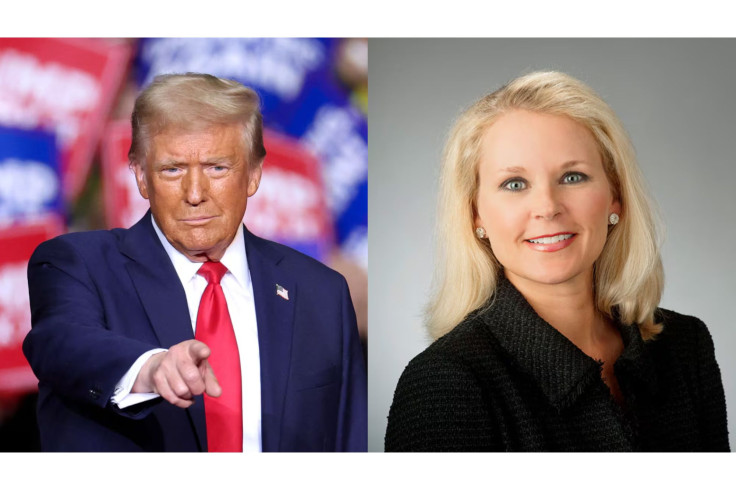When it comes to President Donald Trump’s calls for expanding U.S. territory in the Western Hemisphere, the debate isn’t limited to Washington. Leaders across Latin America are also grappling with whether to take his words literally or view them as broader signals of U.S. foreign policy direction. Among them is Costa Rican Foreign Minister Arnoldo André, who has weighed in on Trump’s ambitious proposals, including annexing Canada, purchasing Greenland, and reclaiming the Panama Canal.
While some dismiss these statements as political bluster, others recognize that they could foreshadow more serious geopolitical strategies. André, in an interview with NatSec Daily, highlighted the need for caution and patience in responding to such statements, given that they come from the leader of the world’s most powerful nation.
“These statements might not have a literal meaning, but rather serve as signals,” André said. “There are statements that could rapidly alter the global order. Thus, we need caution and patience until there’s more certainty.”
Costa Rica’s Unique Position in Latin America
Costa Rica finds itself in a relatively stable position compared to its Central American neighbors when it comes to potential disruptions from U.S. policy shifts. Unlike other countries in the region, Costa Rica’s economy is not as reliant on remittances from the U.S., meaning that policies restricting immigration are less likely to impact its financial stability.
Furthermore, Costa Rica has avoided deep entanglements with Chinese investment, a stark contrast to other Latin American nations that have increasingly aligned with Beijing. This positioning has allowed San José to maintain strong diplomatic ties with Washington without the risk of economic retaliation.
However, while Costa Rica may not be directly targeted by some of Trump’s more radical ideas, there are policy shifts under his administration that could create serious challenges for the country—especially when it comes to migration and security.
Trump’s Immigration Policies and the Impact on Costa Rica
A major concern for Costa Rica’s government is how Trump’s migration policies could affect regional stability. Costa Rica serves as a transit country for migrants coming from South America, the Caribbean, and beyond on their way to the U.S.-Mexico border. In recent years, the country has seen an influx of Venezuelans, Nicaraguans, Cubans, and Haitians, straining its resources and social services.
André warned that Trump’s immigration enforcement strategies, including strict border security measures and mass deportations, could trap thousands of migrants in Central America, creating humanitarian crises in smaller nations.
“There’s an inverse flow of South American migrants who got to Mexico, couldn’t cross the U.S. border, and are now returning,” he said. “Thus, Central America could experience significant pressure in the region.”
Under Trump’s policies, the U.S. may deport tens of thousands of migrants, many of whom might end up stuck in Costa Rica or nearby countries. If the U.S. tightens its border and refuses entry to asylum seekers, transit countries like Costa Rica could face an overwhelming humanitarian crisis with limited resources to respond.
Foreign Aid Freeze: A Growing Concern
Adding to the migration crisis is the Trump administration’s ongoing pause on U.S. foreign aid. Over the years, U.S. assistance has been a critical factor in funding migration relief efforts, infrastructure development, and security initiatives in Latin America. Without these funds, countries like Costa Rica may struggle to provide support for incoming migrants.
André acknowledged that Costa Rica might seek alternative funding from the European Union, Asia, or the Middle East if the U.S. aid freeze continues. However, he also expressed concerns about how these funding gaps could impact humanitarian conditions:
“If we don’t find a way to substitute those resources, the humanitarian conditions of migrants will worsen,” he said.
While the State Department has not commented on how the aid freeze will affect U.S. assistance to Latin America, Secretary of State Marco Rubio has assured that aid will continue for countries cooperating with the U.S. on migration enforcement. Notably, Costa Rica has received a waiver allowing it to resume U.S.-backed cybersecurity projects, demonstrating that the U.S. still considers Costa Rica an important regional partner.
Balancing Caution and Diplomacy in U.S.-Costa Rica Relations
Costa Rica is in a delicate position—maintaining good relations with Washington while preparing for possible shifts in U.S. policy. Trump’s foreign policy rhetoric may generate anxiety in Latin America, but Costa Rican officials appear to be taking a pragmatic approach in navigating these developments.
André’s cautious response suggests that Costa Rica is not overreacting to Trump’s more extreme statements but is also aware that regional shifts could have real consequences. Whether it’s immigration enforcement, foreign aid, or territorial ambitions, Trump’s policies will undoubtedly shape U.S.-Latin America relations in the coming years.
As Costa Rica watches developments unfold, its leaders will need to remain vigilant, adaptable, and strategic in ensuring the country’s interests are protected while maintaining its reputation as one of Latin America’s most stable and U.S.-friendly nations.

